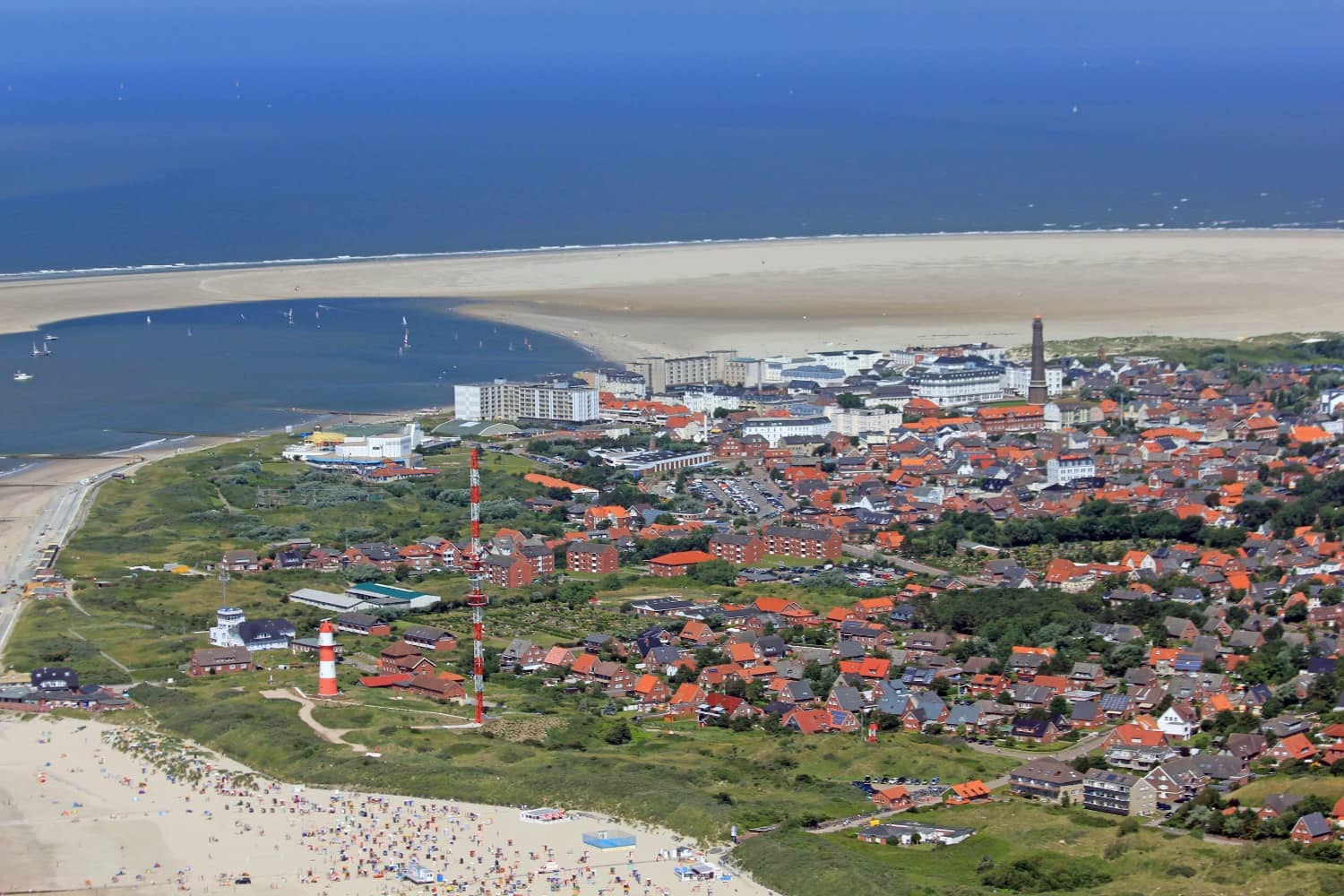Aerial view of Borkum ©see IMPRINT
| Location | North Sea – German North-West coast |
| Area | 31 km² |
| Number of inhabitants | 5,500 permanent residents and over 25,000 during tourist season in summer |
| Climate | Changeable, often overcast, characterised by strong winds during winter |

Aerial view of Borkum ©see IMPRINT
The island of Borkum has a yearly consumption of 30.6 GWh of electricity and 130 GWh of heat. Approximately 50% of the electricity is purchased on the electricity market and is transported to the island by the submarine cable: The share of self-produced renewable electricity in the overall electricity mix accounts for 38.7%. Borkum has set itself the ambitious goal to be carbon neutral by 2030. Currently, nearly 60% of the island’s energy supply is covered by renewable energy sources. In comparison, only around 38% of the energy in Germany as a whole is produced from renewable energies.
Borkum participated via NBG in the NETfficient project focussing on the validation of several types of local storage technologies in combination with PV through extensive prototype testing. Borkum is also involved in the Interreg project H2Watt which assesses the potential of hydrogen and promotes knowledge transfer within the North Sea.
The energy supply in Borkum is guaranteed by Stadtwerke Borkum (NBG), the public utility company, water authority and the only electricity distributor in the island. Two wind turbines of 1.8 MW each, a 1.4 MW solar PV park and 0.27 MW of distributed PV installations feed renewable electricity into the grid. Borkum is not yet energy self-sufficient. Indeed, electricity is also imported from the German mainland through an undersea cable. The heating demand is provided by a gas CHP plant and individual gas boilers. 5 charging stations for electric vehicles are installed on the island.
All technical solutions (see Technologies for further information) developed by project partners are tested in real environment on Borkum. The technical activities are overseen by NBG, the local energy supplier and DSO, which will engage with the citizens by organising information events and overview the planning and implementation of technical tasks. At the core of NBG’s technical mission is the installation of a seawater heat pump system which distributes heat to 100 housing units. The activities carried out in Borkum pave the way for the replication of results to Fellow islands and other EU islands.
Follow us